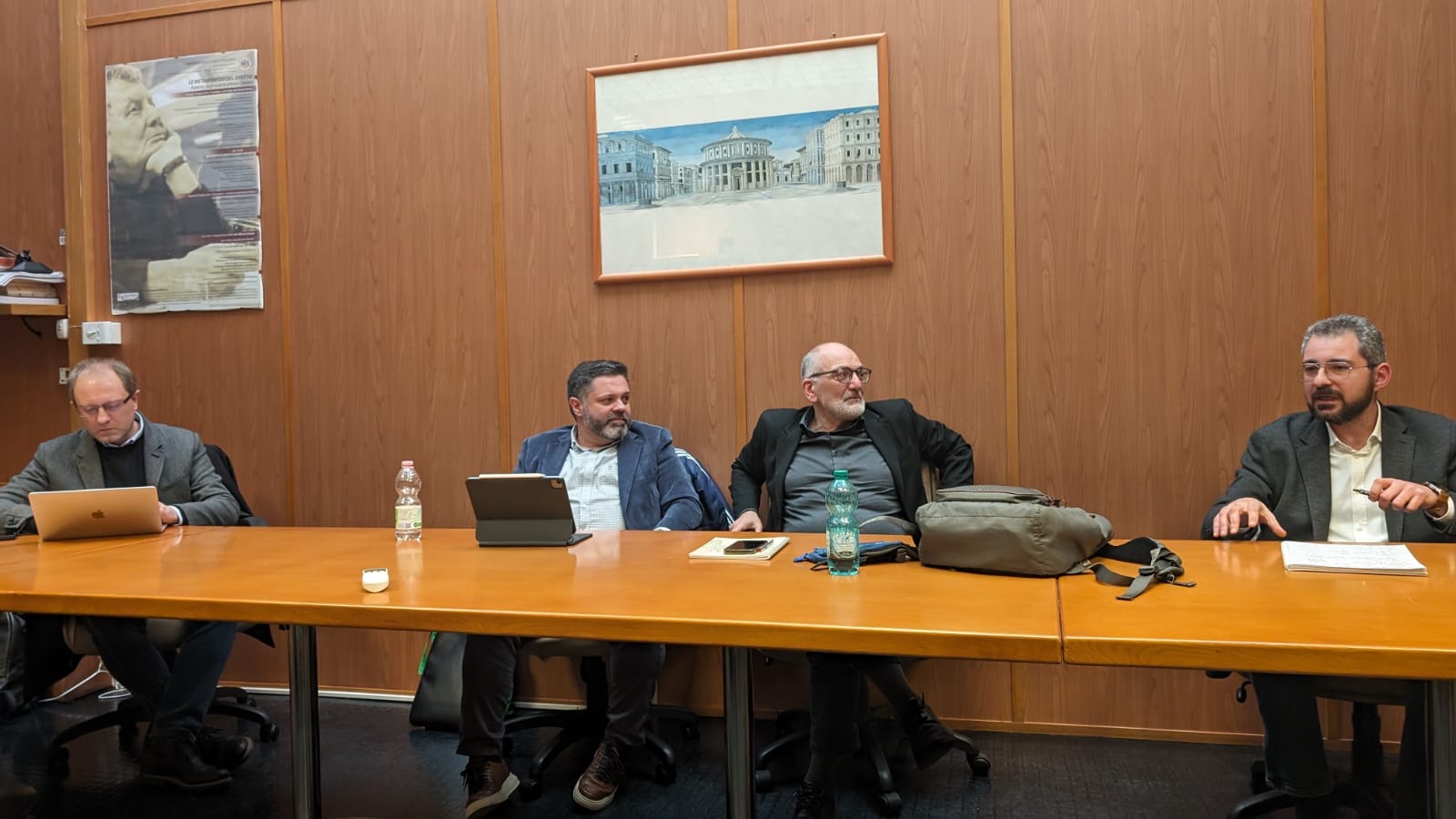CAPES/PrInt Work Mission disseminates research carried out at PUCRS in Spanish and Italian Universities
New connections research and researcher exchange open doors for the internationalization of the University in the fields of Education and Applied Social Sciences
 During the month of February, professor from the School of Health and Life Sciences and from the Graduate Program in Education, José Luís Ferraro, went on a work mission for the CAPES/PrInt Program at Universidad de Sevilla in Spain and at Università Degli Studi di Salerno in Italy.
During the month of February, professor from the School of Health and Life Sciences and from the Graduate Program in Education, José Luís Ferraro, went on a work mission for the CAPES/PrInt Program at Universidad de Sevilla in Spain and at Università Degli Studi di Salerno in Italy.
In Seville, Ferrero, when discussing aspects related to corporeality, led the debate towards the epistemology of Biology and gender studies, defending a “queer Biology” in relation to Biology as a normal science. “The idea of a utopian body (the body of normalization) makes room for the production of heterotopic bodies (non-normative, dissident, counter-hegemonic),” says the professor.
In Salerno, he discussed the militarization of public schools in Brazil based on the unconstitutionality of the National Civic-Military Schools Program. “This research topic is part of the debate on social control, on the regulation of bodies and the criminalization of children and adolescents born into working class families — childhoods and youths that are, for the most part, non-white — based on the establishment of a punitive disciplinary mechanism in Brazilian schools,” he says.
The professor also participated in the congress titled “Michel Foucault and literature: history, life and politics,” at Universidad de Granada, presenting an oral communication. On the occasion, researchers such as Judith Revel, Fabienne Brugère, Orazio Irrera, Frederic Gros, Adriana Sforzini, Philippe Sabot, Isabelle Galichon and Azucena Blanco, among others, were present.
For the professor, these activities represent an advance in the internationalization of research at PUCRS. “The work mission helped to strengthen the internationalization aspect with the discussion of possibilities of collaboration and exchange — between researchers from these universities and from PUCRS — based on the establishment of an articulated cooperation network involving an international research group that will be created and registered at the CNPq,” explains Ferraro.





